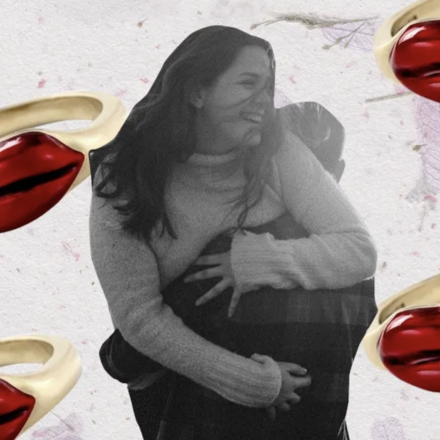Emophilia: Why We Fall for Everyone and How to Handle It
A girl with emophilia may feel a special connection with a man she barely knew a few days ago.
Some women start choosing a wedding dress the day after meeting a potential partner. After some time, they fall in love again and plan a dream wedding, but now with someone else. In the past, this kind of behavior was described as “emotional promiscuity,” but today it’s called emophilia.
What Is Emophilia?
The term refers to an unhealthy behavioral pattern in love. A girl with emophilia may feel a special connection with a man she barely knew a few days ago.
She idealizes the romantic relationship with him, overlooking his quirks and flaws. When starting a new romance, an overly infatuated girl doesn’t think about long-term prospects or potential difficulties.
Another trait of people with emophilia is that they feel incomplete and anxious when they’re not in a relationship.
Why Does Emophilia Develop?
Several interconnected factors contribute to emophilia, often forming one after another.
Anxious Attachment Style
People with this attachment style seek relationships but don’t feel secure in them. They often doubt their partner’s sincerity, can't get enough of their presence, and try to merge with them emotionally. They view themselves as unworthy of love and constantly fear being abandoned.
Women with this attachment type display unhealthy jealousy, fear loneliness, and idealize relationships. They believe they must earn love, often sacrificing their desires and making constant compromises.
Fear of Loneliness
Emophilia is common in individuals with a pathological fear of loneliness. They’ll love someone undeserving just to avoid being alone. Such people romanticize toxic relationships, sacrificing their dreams and interests to maintain a connection with their partner.
Overly Emotional Sensitivity
Many women with emophilia react intensely to events. Even the slightest compliment can spark feelings of love. This heightened emotionality prevents them from maintaining stability and peace throughout the day, leading them to swing between sadness and euphoria.
Low Self-Esteem
Women with low self-esteem seek external validation. They fall in love with men who offer minimal attention or compliments. Because of their low self-worth, they believe they’re undeserving of successful men and settle for those who choose them.
These women often struggle to stay in one relationship. Frequent partner changes make them feel desirable.
Past Trauma
Painful past relationships can also trigger emophilia. Women in search of healing may rush into new relationships, hoping to feel loved again. This urgency leads to impulsive decisions and misplaced trust in unfamiliar partners.
How to Handle Emophilia
Love is a beautiful and profound emotion, but falling for everyone can be dangerous. Being indiscriminate in relationships complicates life. To become more grounded and stable, consider implementing these strategies:
Stop Idealizing Partners
Many women tend to idealize their partners, but this inevitably leads to disappointment. It's essential to accept the fact that there is no such thing as a perfect man.
Instead, focus on finding someone whose flaws don’t feel catastrophic and acknowledge your own imperfections.
Work on Your Self-Esteem
Improving self-esteem takes effort. If you want to build healthy relationships and become a strong individual, start working on yourself. Celebrate small victories and appreciate the effort you put in daily. Stop comparing yourself to other women and invest time in your dreams.
Focus on Other Aspects of Life
If you believe that women outside of relationships can’t be happy, it’s time to reassess your outlook.
There are many rewarding activities to dedicate your time to. Find a new hobby, focus more on your career, or strengthen your friendships. Once you stop obsessing over romantic relationships, you’ll feel more content.
Look Beyond Appearances
Women who fall in love quickly often prioritize a man’s looks. However, not all attractive men are good partners. Learn to see beyond appearances, focusing on character and worldview to avoid poor choices.
Differentiate Love from Infatuation
There’s a significant difference between love and infatuation, but not everyone recognizes it. If you want a strong, healthy relationship, it’s essential to understand this distinction.
If you’re unwilling to accept your partner’s flaws, can’t envision a future together, or struggle to empathize with him, then the relationship lacks depth.
By recognizing these patterns and working on yourself, you can build meaningful connections and experience lasting love.



















